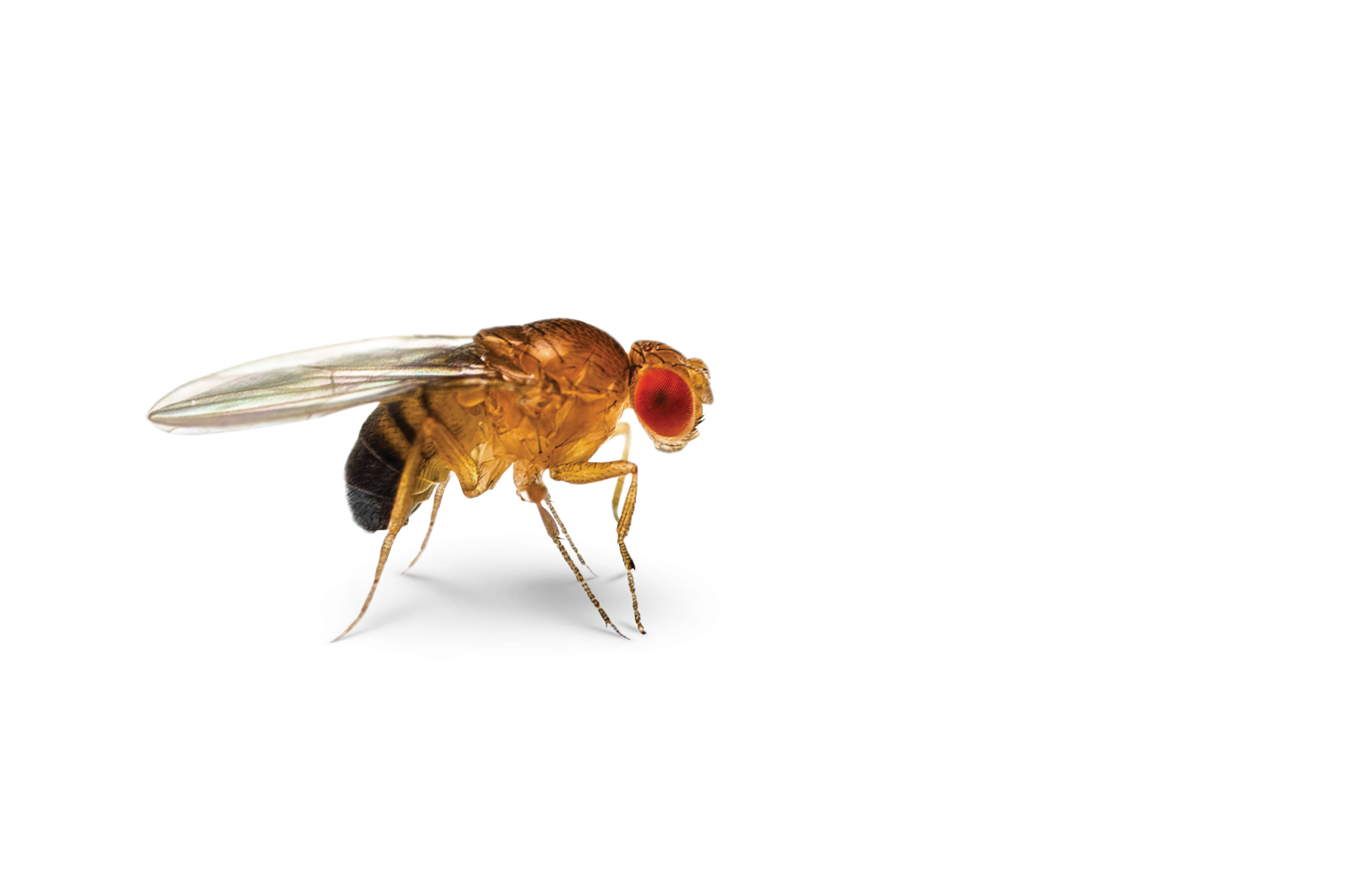Principal Investigator
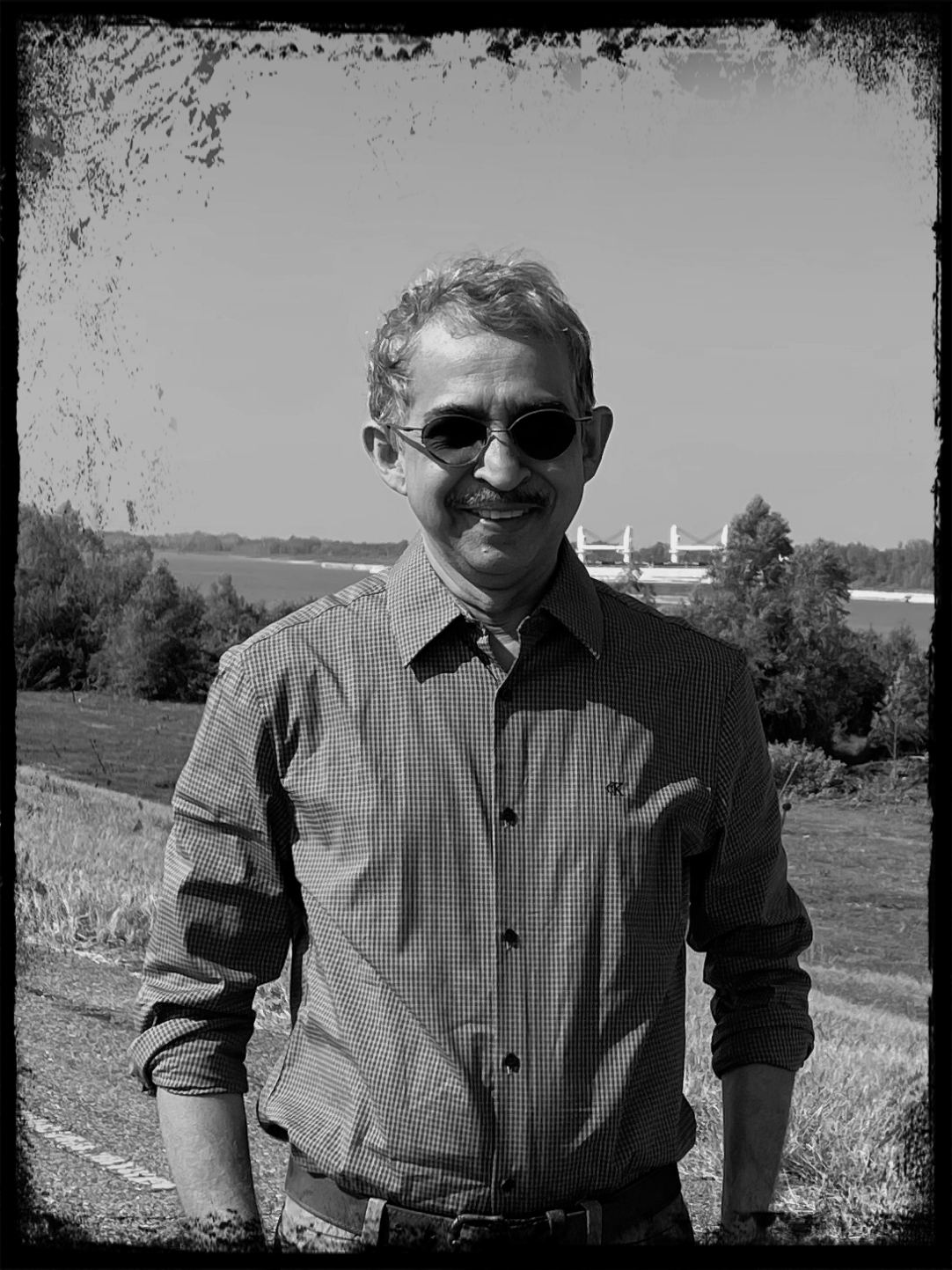
Krishna Bhat, PhD, MD
bhatk@uab.edu
Dr. Bhat holds the BME Endowed Professorship at the Department of Biomedical Engineering, Heersink School of Medicine and School of Engineering, University of Alabama Birmingham. Dr. Bhat’s lab utilizes Drosophila as their main experimental organism, but also human brain and tissue samples in their work to relate the findings to humans. The major accomplishments from his lab include: 1) identifying Frizzled group of proteins as receptors for Wg/Wnt group of proteins (Cell), 2) Providing foundational work on how multiple segmentation genes interact and determine different identities for different neuronal stem cells (a series of papers in Development, Genetics, PLoS Genetics, etc), 3) That progeny neuronal fates are already determined in the parent cell itself by polarization through asymmetric localization of proteins in the parent; this work also includes showing that Cyclin E forms the basis for self-renewing division of neural stem cells, or determining single division potential to parent cells and post-mitotic status to neurons (a series of papers in Science Signaling, PLoS Genetics, Development, etc), and 4) The role of Slit-Robo signaling in axon guidance (a series of papers in Science Signaling, PLoS Genetics, Genetics, etc). In the last several years, his lab has also been working on several neurodegenerative diseases such as the Alzheimer’s, ALS-FTD, Huntingtons and Fredrich’s Ataxia. Dr. Bhat also has a biotech startup company called Curegenex with the goal to bring his bench work to bedside.
Research Scientists

Sreesankar Easwaran, PhD
easwaran@uab.edu
I am a Scientist II in Dr. Krishna Bhat’s lab in the Department of Biomedical Engineering at UAB Birmingham, with a strong background in biochemistry, genetics, cell biology, and molecular biology, and experience with multiple model systems, including fly, yeast, plant, cell culture, and patient-derived samples. My Ph.D. research on the Drosophila homolog of Rif1 uncovered its interaction with Protein Phosphatase 1, revealing how Rif1 performs diverse and conserved roles across species. During my postdoctoral research, I investigated germline stem cell maintenance, senescence, and fertility, examining how environmental cues such as reproductive diapause influence ovarian development, using genetic, cell biology, and GWAS approaches. Currently, I explore neuronal development, aging-associated neurodegenerative diseases such as Huntington’s disease, and neuroendocrine cancer, to uncover molecular mechanisms that extend healthspan and preserve cellular function.
Post-Doctoral Fellows
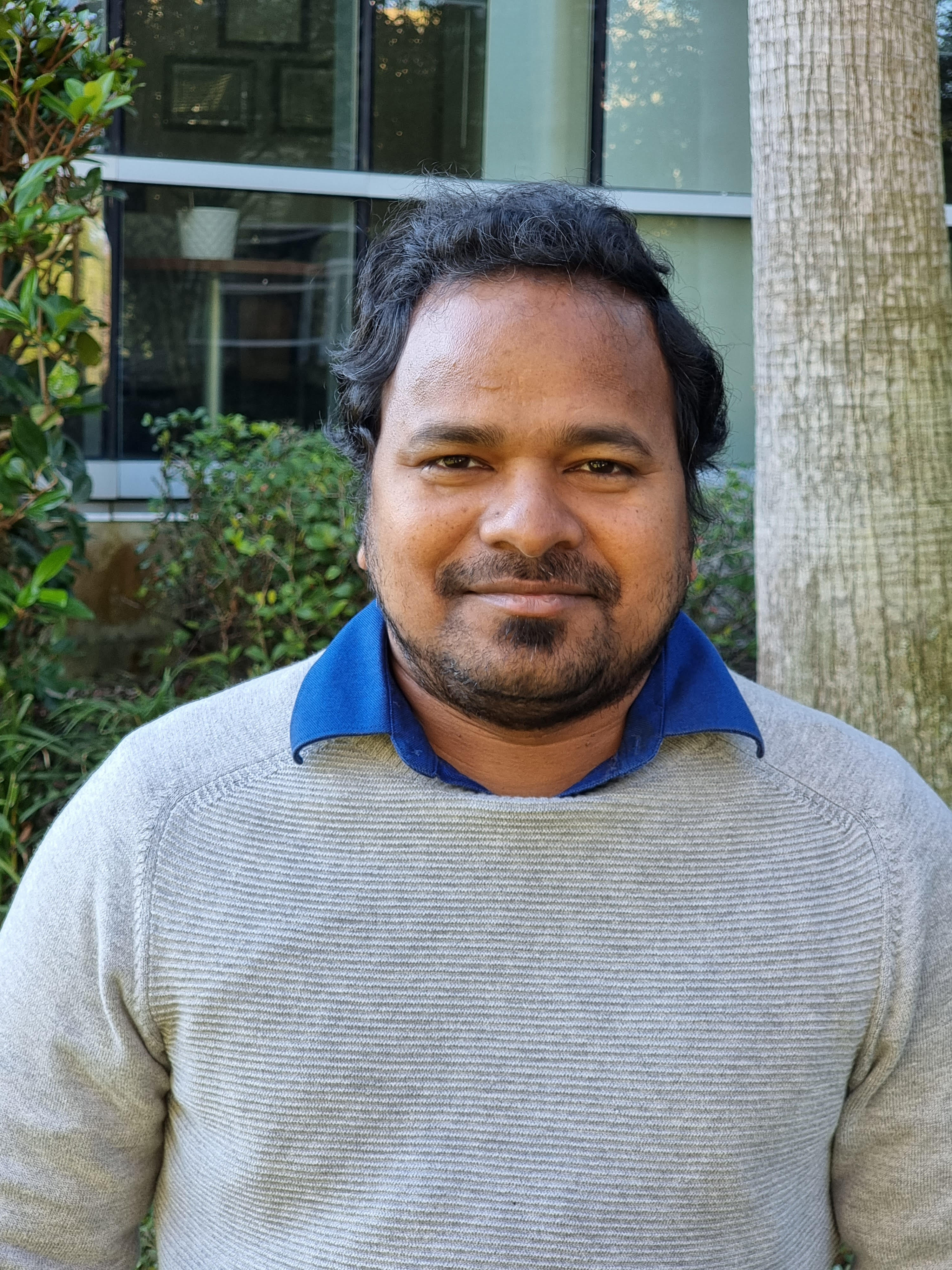
Shreekant Verma, PhD
sverma3@uab.edu
I am currently a Postdoctoral fellow in Dr. Bhat's Lab at UAB, where my research focus centers on unraveling the molecular mechanisms underlying neurodevelopment and neurodegenerative diseases. Using a genetics approach in Drosophila, I aim to contribute valuable insights to our understanding of these intricate processes. My curiosity extends to exploring the neurocircuitry involved in courtship behavior in Drosophila. My Ph.D., earned at CCMB-Hyderabad, India, involved identifying and characterizing cis-regulatory elements associated with the epigenetic regulation of the eyeless (ey) gene in Drosophila melanogaster. This background reflects my dedication to unraveling the complexities of genetic and molecular phenomena, particularly within the context of neurobiology.
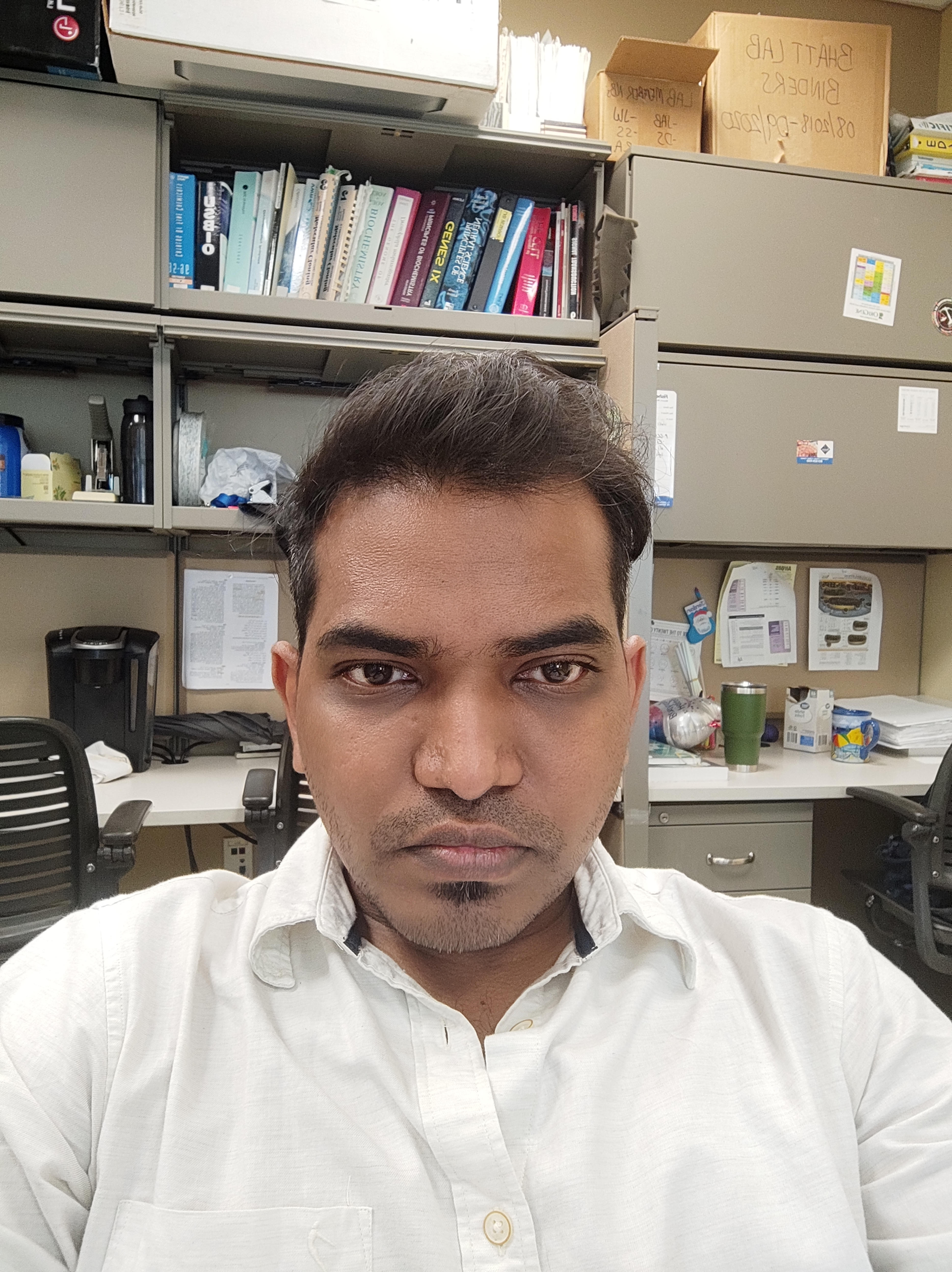
Aswan Nalli, PhD
nallia@uab.edu
My research and academic training have provided me with an excellent background in biological disciplines like molecular biology, biochemistry, cell biology and genetics. I began my research in the membrane biophysics laboratory, where we demonstrated the significance of the hydroxyl group of cholesterol in the function of Serotonin 1A receptor (GPCR). Later for my doctoral research I worked on Plant reproductive biology from Centre for Cellular and Molecular Biology, Hydearbad, India. In my doctoral research I characterized a mutant for male meiotic transcriptional regulator, and the genes regulated by it using genetics, molecular biology, and biochemical techniques. I am working as a post-doctoral fellow, on the neurodegenerative disease using Drosophila as a model organism. And also interested in the development of Drosophila neuronal system.
Recent Alumni/Collaborators
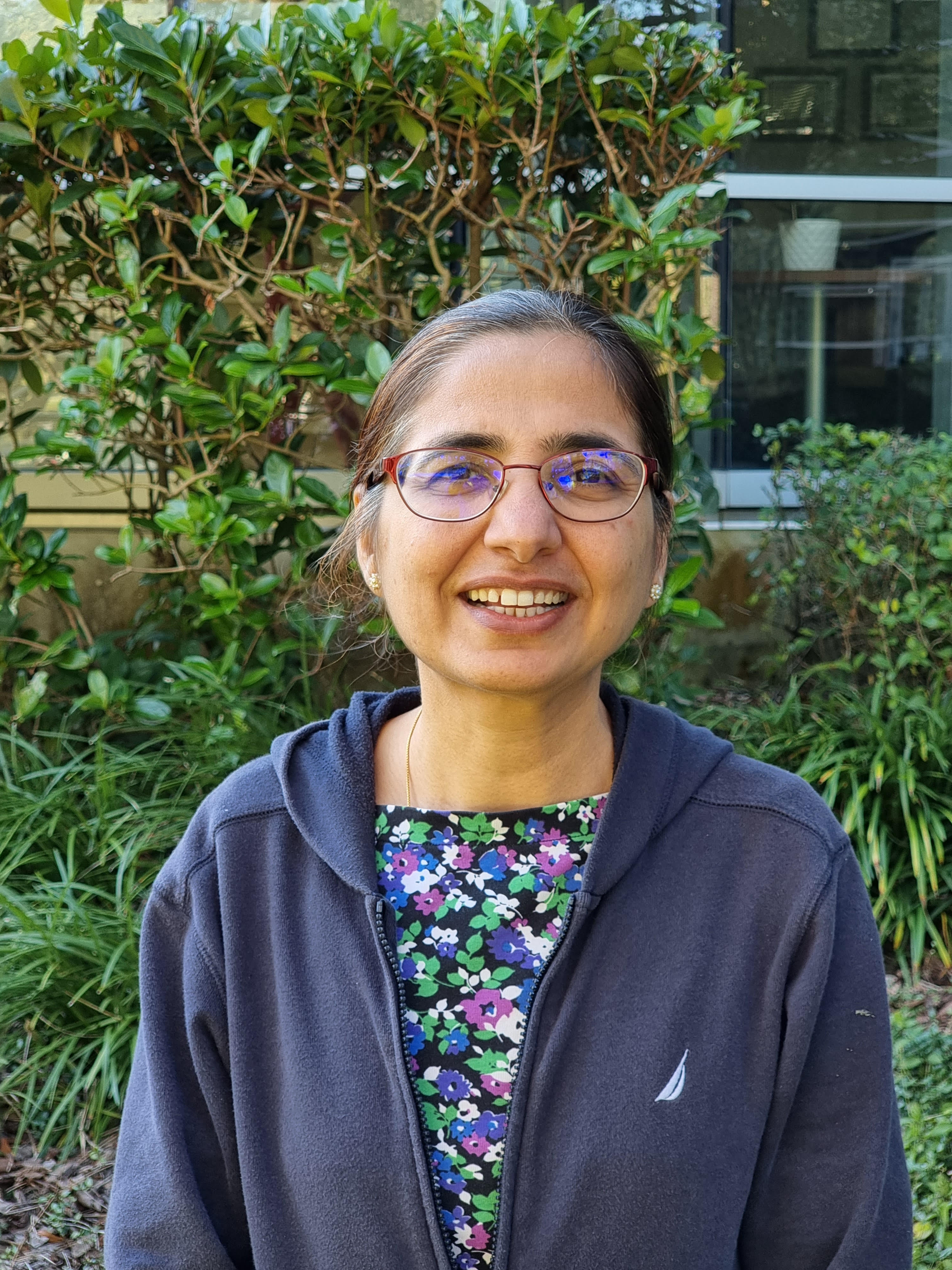
Kalpana Makhijani, PhD
I am a Professor at University of Tampa and I collaborate with Dr.Bhat's laboratory with expertise in Drosophila genetics, Neurobiology and hematopoiesis. I use the simple fruitfly model to answer questions relevant to human health. I study the role of a human disease gene in Drosophila nervous system and am also collaborating with my labmates to study function of a transcription factor prospero in early neuronal development. I believe that many of the fundamental questions related to what goes wrong during disease can be addressed in depth and with great ease using Drosophila genetics.
Graduate Students
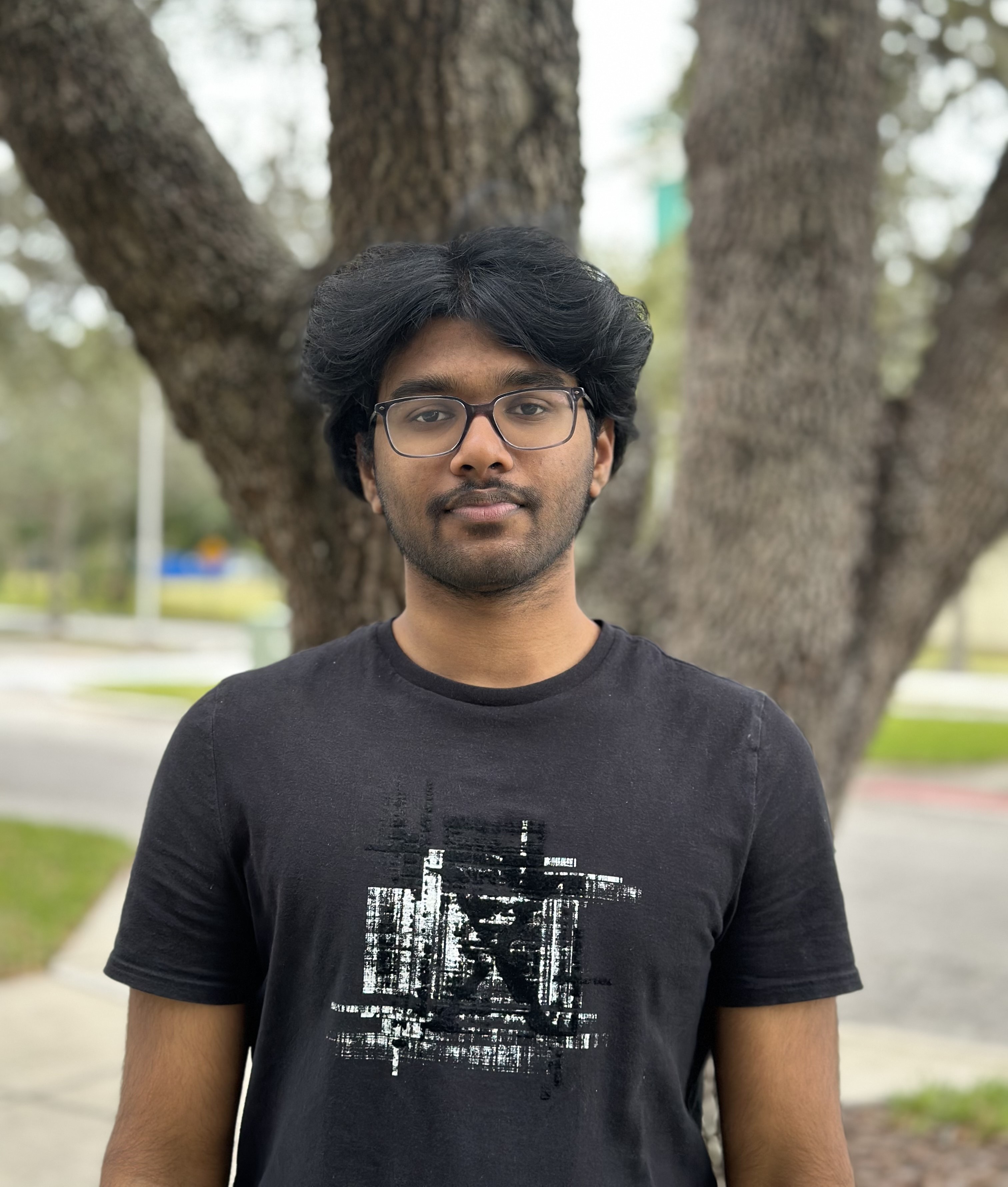
Goutham Kommini
gkommini@uab.edu
I have a bachelor's in Biomedical Sciences with a minor in Public Health. I was born in America, but I’ve spent half my life in India and came back to America to pursue my dream of becoming a doctor. I enjoy maintaining an active lifestyle through weightlifting, and occasionally like to cook and indulge in cuisine from different cultures. In Dr. Bhat’s Lab, I am currently studying the ALS/FTD and Tau in Drosophila. I have a keen interest in neuroscience and aspire to contribute to the field through engaging in research that deepens our understanding.
Research Associates
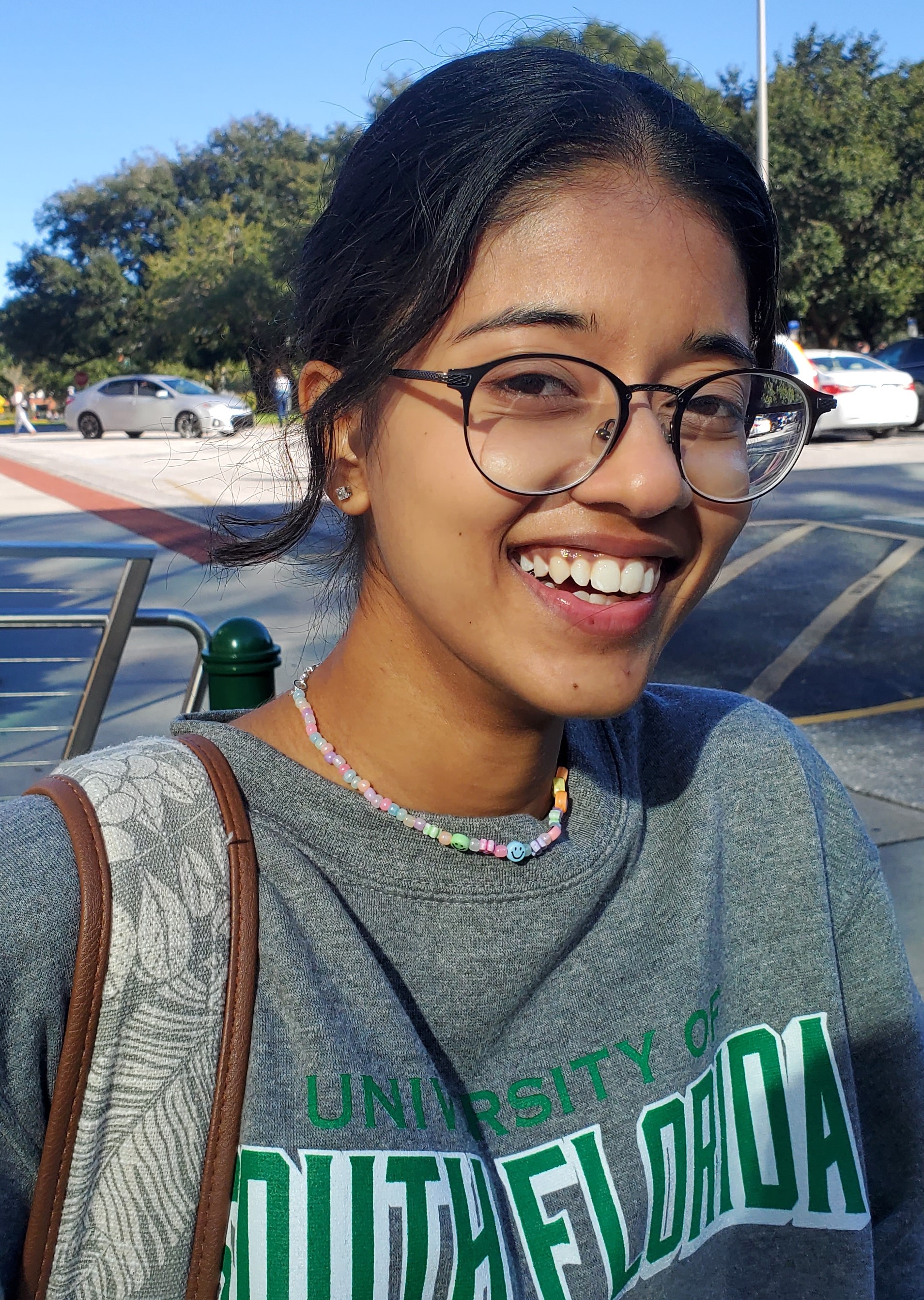
Anjali Thakur
athakur2@uab.edu
I have a bachelor's in Biomedical Sciences and a minor in Nutrition. I was born in Punjab, India and moved to America when I was 13 years old. I find joy in diverse activities such as painting, ceramics, skateboarding, and lacrosse. These outlets not only provide a refreshing break from academic rigor but also contribute to a well-rounded perspective. I am currently studying diseases such as Huntington’s as well as ALS/FTD using the Drosophila model system. Being a part of this research lab has proven to be an incredibly motivating experience. The environment is dynamic and collaborative, pushing me to strive for excellence. In the future I aspire to be a cardiothoracic surgeon.

Madina Rakhmonova
mrakhmon@uab.edu
I have a bachelor's in Biomedical Sciences and a minor in Nutrition. I was born in Uzbekistan and moved to America when I was 10 years old. I engage in a variety of hobbies that contribute to my personal enrichment. Painting and photography provide me with a creative outlet. Additionally, I enjoy rollerblading. I want to apply to medical school, and I have been leaning towards the neuroscience field because of the research in Dr. Bhat’s Lab. I am currently studying diseases such as Huntington’s as well as ALS/FTD using the Drosophila model system.
Recent Alumni
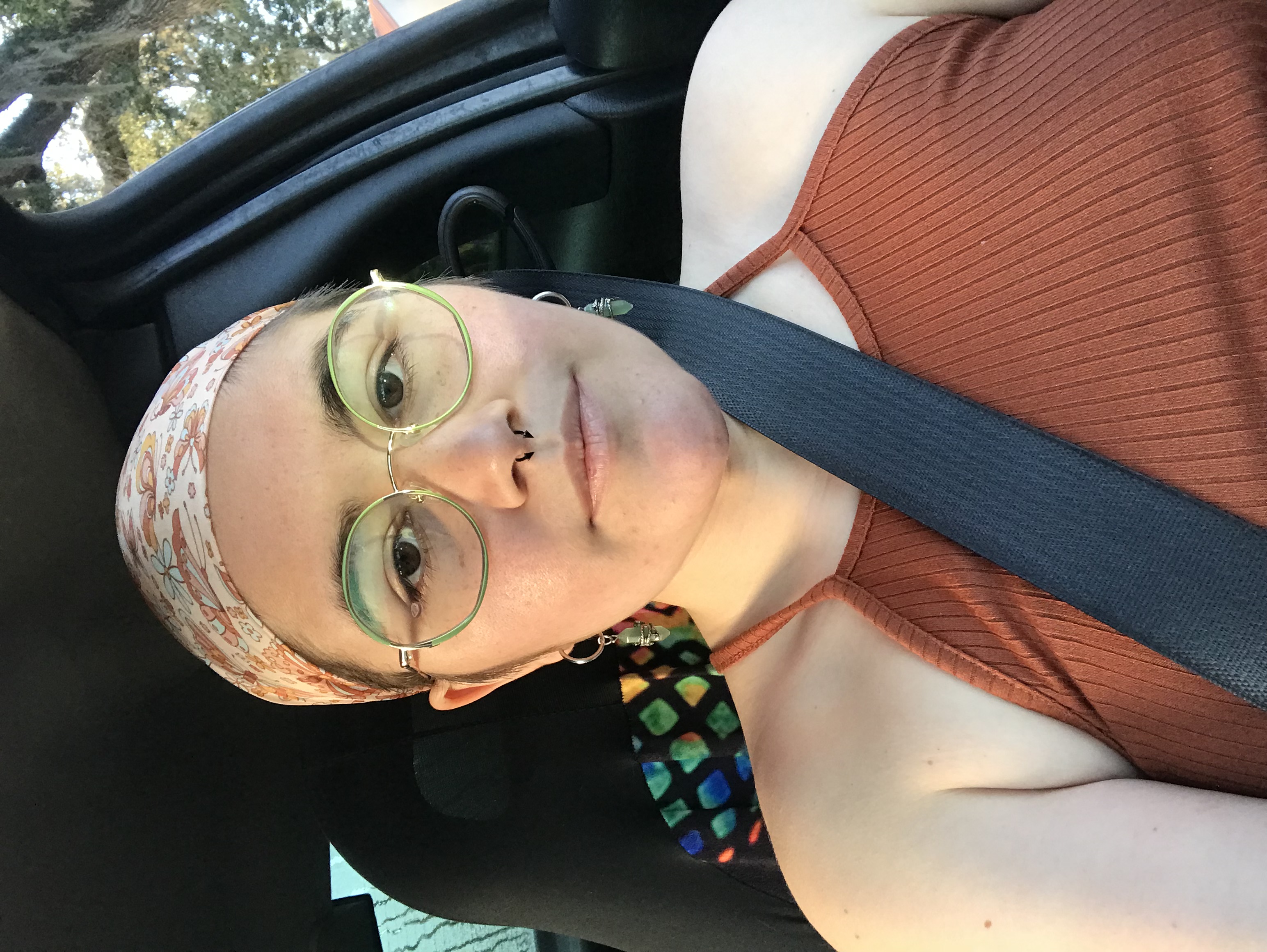
Natalia Hurst
I have a major in Cell and Molecular Biology with a minor in both Psychology and Sociology. Raised in the vibrant city, I've cultivated a love for creativity, often exploring local art scenes and immersing myself in the rich cultural tapestry. Accompanying me along my journey are my 4 adopted cats that I found were homeless. Having been doing research for over 2 years, I have developed a keen interest in neurodegenerative diseases and, consequently, plan on pursuing a PhD in neuroscience. I was born and raised in Tampa, FL and love to read and paint. In Dr.Bhats lab I studied various transgenic viral proteins and the effects of Tau on neurodevelopment.
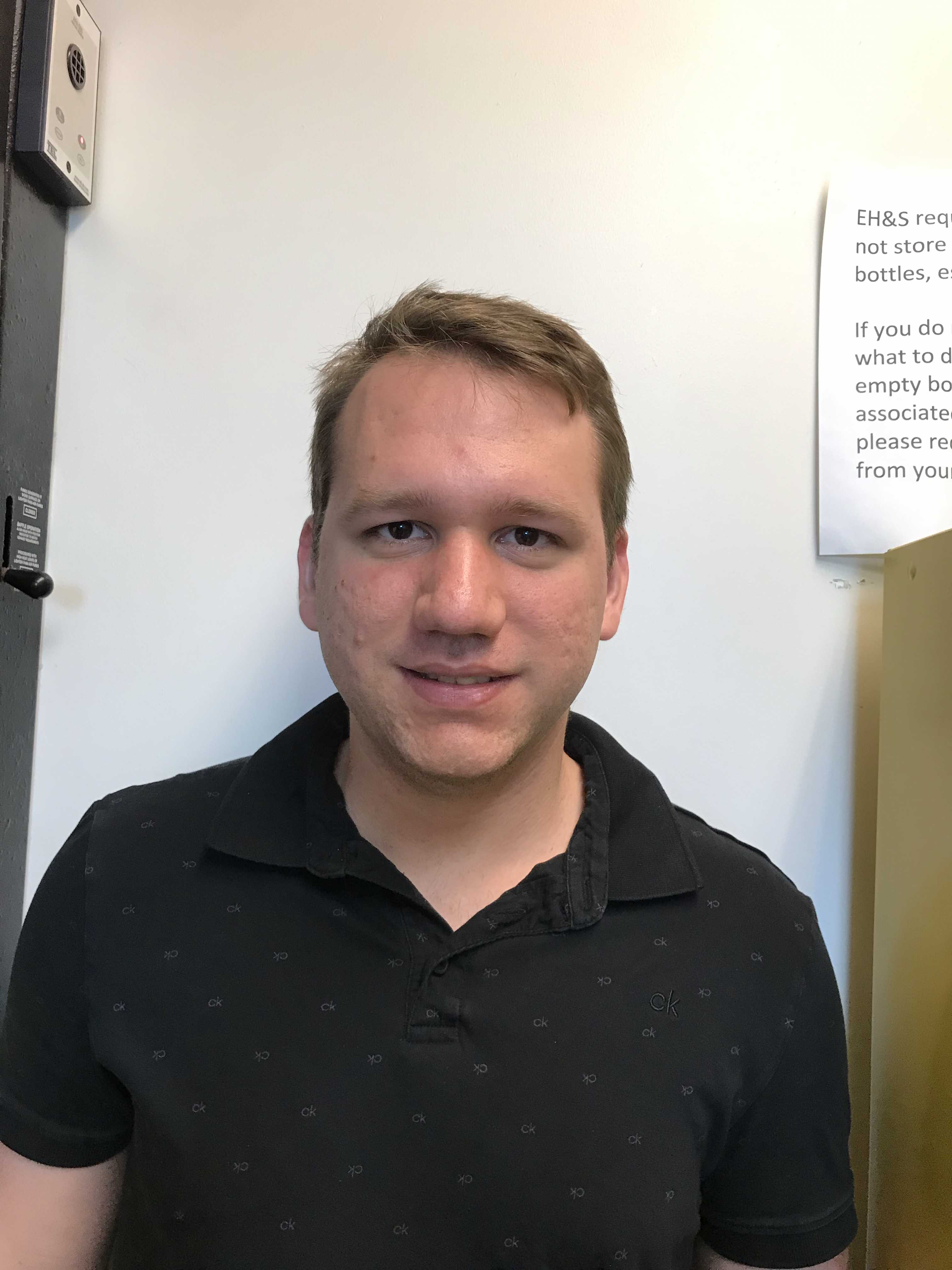
Angel Perez
My name is Angel Perez, and I was a research technician in Dr Bhat’s lab during 2023-2024. I graduated from the University of South Florida with a B.S. in molecular and cell biology, my academic journey has ignited a deep-seated fascination with neurodegenerative diseases, with a specific emphasis on ALS. Looking ahead, my aspirations involve pursuing a Ph.D. in biochemistry and molecular biology, driven by a commitment to contribute significantly to the evolving landscape of scientific research. Outside of work, I love traveling to experience different cultures and languages, giving me a fresh outlook on the world. I also place a strong emphasis on maintaining a healthy lifestyle through regular workouts, and camping.
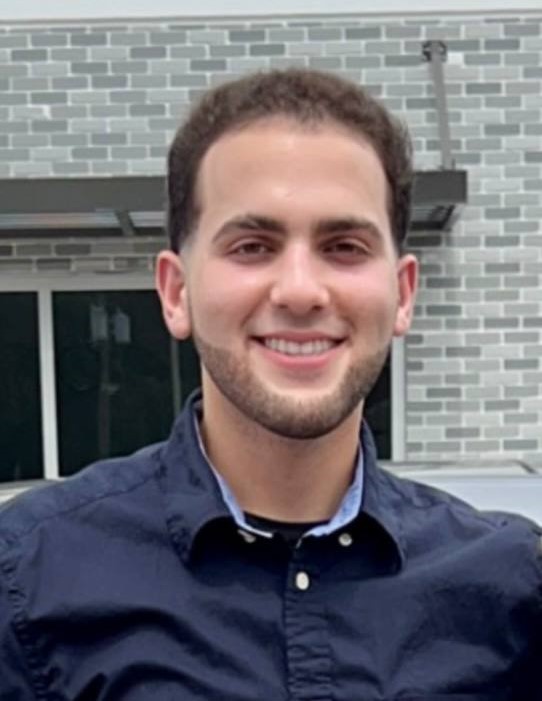
Hussein Khalil
My expertise lies in the meticulous dissection of Drosophila hearts, with a focus on comprehending cardiac function in both adult flies and larvae. Through this, I aim to identify biomarkers and unravel the genetic foundations of heart health and disease. By deciphering the interplay of genes and proteins crucial to cardiac development and maintenance, my work contributes to a deeper understanding of the intricate dynamics inherent in the heart's genetic and protein processes. The insights gained from my research shed light on the fundamental mechanisms governing cardiac development and function.

Inga Malysheva
I majored in Biomedical Sciences at USF, my journey from Russia to America has been fueled by a dream of becoming a family physician. Beyond academia, I find joy in baking and cherishing moments with my feline companion, Maruska. Within the lab, I focused on exploring gene knockdowns in various neurotransmitter systems within Drosophila. This hands-on research not only aligned with my academic pursuits but also underscores my dedication to understanding the intricate genetic mechanisms that impact neurotransmission, as I strive to contribute meaningfully to the field of medicine.

Roy Chen
I'm a Biomedical Sciences student, and I explored the effects of viral proteins on neurotransmitter systems in the Drosophila nervous system in Dr. Bhat’s Lab. Aspiring to become a neurologist, I'm driven by a deep interest in unraveling the complexities of the human brain. Beyond academics, I find joy in crafting fictional stories and expressing myself through art, particularly drawing. These creative outlets complement my scientific pursuits, contributing to a comprehensive approach to my studies and personal growth.
